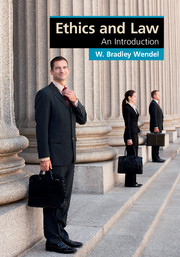10 - Counseling clients
Published online by Cambridge University Press: 05 October 2014
Summary
A good barista is hard to find
Your client is a company that operates a chain of successful boutique cafes and coffee shops in the four largest cities in New Zealand (Auckland, Wellington, Christchurch, and Hamilton). The president of the company, who is also the majority stockholder, asks you to draft an employment contract to offer to applicants. She is particularly concerned that new staff might stay with the company for a year or two, to develop relationships with customers and suppliers and skills as coffee purchasers, roasters, baristas, and managers, before leaving and setting up in competition. The coffee business, your client explains, depends crucially upon close personal and professional relationships with customers and suppliers, and upon the special skills of good baristas and coffee roasters.
The president of your client company has heard about the use of restraint-of-trade (sometimes called noncompete) clauses in employment contracts. She has come to your office with a sample contract, prepared by the New Zealand Employers and Manufacturers Association (EMA). The sample contract includes an explanation by the EMA of various clauses and the reason for including them. Regarding restraint-of-trade clauses, it says:
Deterrence is a good reason for including restraint-of-trade clauses in your employment agreements. Sometimes this may be the only reliable reason for including such a clause in your employment agreements; most restraint-of-trade clauses have been found unenforceable when tested in court.
“Deterrence,” says the president, “is exactly what I want. I want you to draft the strongest possible clause. I want it to specify that, in consideration for a generous salary, the people I hire will agree not to have any role in the coffee industry anywhere in New Zealand for four years after they stop working for me.”
- Type
- Chapter
- Information
- Ethics and LawAn Introduction, pp. 200 - 215Publisher: Cambridge University PressPrint publication year: 2014



